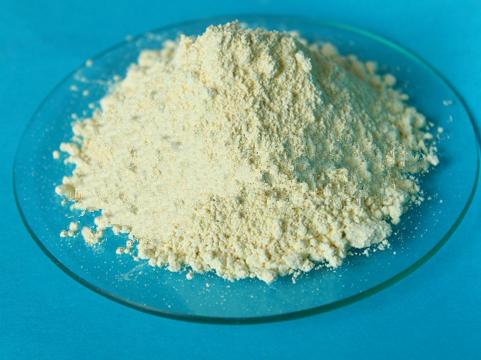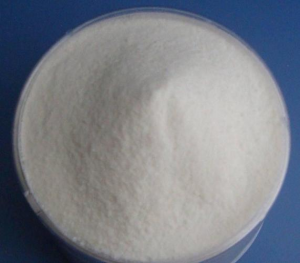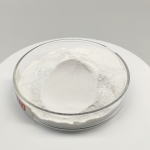Professional solutions on concrete addtives, Concrete Foaming Agent, Superplasticizer, CLC Blocks Additives, and foaming machine
Synthetic accelerators are mainly composed of organic and inorganic compounds that promote rapid hydration reactions within the cement matrix. Common chemical substances include calcium nitrate, calcium formate, as well as various aluminates and silicates. These compounds work by reducing the activation energy required for hydration reactions, thereby accelerating the formation of hydration products such as calcium silicate hydrate (C-S-H) and calcium aluminate hydrate (C-A-H).

Synthetic accelerator
The molecular structure of synthetic accelerators plays a crucial role in their effectiveness. For example, organic accelerators such as formate have functional groups that can interact with cement particles, which helps to accelerate dissolution and reaction rates. On the other hand, inorganic promoters typically contain ions that directly participate in hydration reactions, enhancing the nucleation and growth of hydration products.
The role of stabilizers in synthetic accelerators
A key aspect of developing effective synthetic accelerators is the addition of stabilizers. Stabilizers are additives that can prevent premature solidification or unnecessary side reactions during the mixing and application stages. They ensure that the accelerator remains active until it reaches the desired position in the concrete mixture before it can fully exert its function. The selection of stabilizers in synthetic accelerators depends on several factors, including the type of accelerator, expected application, and environmental conditions. Common stabilizers include:
Phosphates and borates: These compounds help maintain the pH value in concrete mixtures and prevent premature reactions.
Polyols and polyamines: These substances act as chelating agents, forming complexes with metal ions present in cement slurries to control hydration rates.
Organic polymers: Some polymers can encapsulate accelerator molecules and gradually release them over time. This controlled release mechanism ensures optimal performance without causing sudden spikes in reactivity.
For example, in the case of calcium nitrate-based accelerators, phosphates are often used as stabilizers because they effectively control the exothermic properties of hydration reactions. Similarly, polyamines are beneficial in formulations containing calcium formate because they can stabilize formate ions and prevent premature reactions with cement components.
| Parameter | Specification |
| Product Name | Synthetic Accelerator |
| CAS Number | Varies by specific compound |
| Chemical Composition | Proprietary blend (typically includes salts of organic or inorganic acids) |
| Appearance | White to off-white powder or clear to light yellow liquid |
| Form | Powder / Liquid |
| Density (g/cm³, at 25°C) | For liquids: approx. 1.1 – 1.3 g/cm³ |
| pH Value (10% solution) | Typically alkaline, pH 8-11 |
| Chloride Content (%) | <0.1% (for chloride-free types) |
| Sulfate Content (%) | Varies based on formulation |
| Recommended Dosage | 1-3% by weight of cement (adjust according to project requirements and mix design) |
| Setting Time Reduction | Can reduce initial setting time by up to 50% |
| Early Strength Gain | Significant increase in compressive strength within the first 7 days |
| Water Solubility | Highly soluble in water |
| Application | Used in concrete, mortar, shotcrete, precast concrete |
| Packaging | 25kg bags, 1000kg bulk bags, 200L drums, IBC containers |
| Storage Conditions | Store in a dry place, away from moisture and direct sunlight |
| Shelf Life | 12 months when stored properly |
| Safety Precautions | Avoid contact with eyes and skin; use appropriate PPE |
Product Specifications for Synthetic Accelerator
The practical application of synthetic accelerators
The multifunctionality of synthetic accelerators makes them indispensable in various architectural scenarios. A prominent application is in concrete pouring in cold weather, where low temperatures significantly slow down the hydration process. By adding synthetic accelerators, contractors can ensure faster initial setting and obtain sufficient strength in a shorter amount of time, even in adverse weather conditions, to complete projects in a timely manner.
Another important use of synthetic accelerators is in shotcrete applications, particularly in tunnel and slope stabilization. Shocked concrete requires rapid solidification and high early strength to provide immediate support for the underlying structure. Synthetic accelerators can not only meet these requirements but also improve the durability and long-term performance of sprayed concrete.
In addition, synthetic accelerators play a crucial role in the manufacturing of precast concrete. Prefabricated components need to quickly reach the specified strength level for effective demolding and transportation. Accelerators facilitate this process by promoting faster curing, thereby optimizing production cycles and shortening delivery times.
Although synthetic accelerators provide many benefits, their applications are challenging. A common issue is to strike the right balance between acceleration and durability. Excessive use of accelerators can result in excessive heat generation, which may damage the long-term stability of concrete. Therefore, precise dose control is crucial for maximizing performance without adverse effects.
In addition, careful consideration must be given to compatibility with other additives. Some synthetic accelerators may interfere with air-entraining agents, water-reducing agents, or retarders, leading to unexpected results. To address this issue, it is necessary to conduct comprehensive testing and formula adjustments to ensure harmonious interaction between all components. Choosing the appropriate stabilizer is crucial for maintaining the effectiveness of synthetic accelerators. As mentioned earlier, stabilizers can prevent premature reactions and ensure optimal performance. For example, when using calcium nitrate-based accelerators, selecting appropriate phosphate compounds can significantly affect the overall performance of concrete mixtures.
Case study: Synthesis and optimization of synthetic accelerators
To illustrate the importance of stabilizers in the synthesis of accelerators, let us consider a case study involving the synthesis and optimization of calcium nitrate-based accelerators. The researchers aim to develop an efficient formula that can accelerate the hydration process while ensuring excellent durability and minimal thermal effects. Initially, the team attempted different concentrations of calcium nitrate and evaluated its effects on solidification time and early strength development. They found that higher concentrations lead to faster solidification but also increase heat generation, which may affect long-term stability. To alleviate this issue, they introduced various stabilizers into the mixture, including phosphates and polyamines. Through extensive testing, researchers have determined the optimal combination of calcium nitrate and phosphate stabilizers that can quickly solidify without generating excessive heat. Stable accelerators have demonstrated outstanding performance in both laboratory testing and practical applications, confirming the crucial role of stabilizers in achieving balanced and effective results.
Synthetic accelerators represent significant advances in building materials technology, providing higher performance and efficiency in various applications. Their ability to accelerate hydration reactions and improve early strength development has fundamentally changed concrete construction practices. However, the successful deployment of synthetic accelerators depends on careful formulation, including the strategic use of stabilizers to ensure optimal performance and compatibility.
As research continues to discover new possibilities, synthetic accelerators will undoubtedly play an increasingly important role in shaping the future of building materials. By addressing current challenges and exploring innovative solutions, we can unleash greater potential from these powerful additives, paving the way for more sustainable and resilient infrastructure projects.
Supplier
Cabr-Concrete is a supplier under TRUNNANO of Concrete Admixture with over 12 years of experience in nano-building energy conservation and nanotechnology development. It accepts payment via Credit Card, T/T, West Union and Paypal. TRUNNANO will ship the goods to customers overseas through FedEx, DHL, by air, or by sea. If you are looking for Synthetic accelerators, please feel free to contact us and send an inquiry.sales@cabr-concrete.com






